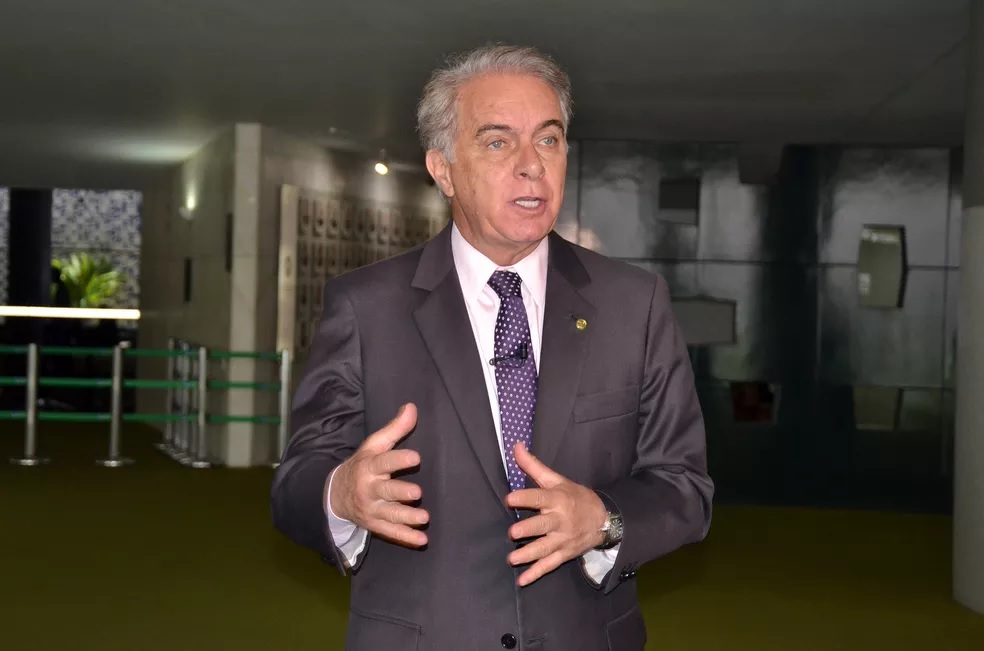RIO DE JANEIRO, BRAZIL – Brazil’s new Minister of Agriculture, Marcos Montes, said on April 5 to the Rural Caucus that the mineral exploration of indigenous lands for fertilizers is strategic. “I told the parliamentarians that we need to treat mineral exploration on indigenous lands with a strategic focus, and fertilizer is a strategic mineral,” Montes said to the press after his first participation in the weekly luncheon meeting of the Parliamentary Front for Agriculture and Livestock (FPA).
Montes said he is “happy” with the possible advance of bill 191/2020 in the House of Representatives, which deals with mining in indigenous lands. The president of the Chamber, Arthur Lira (PP-AL), recently indicated that he might put the project to a vote next week. “I am happy with the president’s position. If he votes next week, it will be a fundamental matter to be analyzed. We have to be careful in analyzing this matter. It is a delicate matter,” he observed.
According to him, the indigenous community needs to be clarified about the form of this exploration and profitability because, in his evaluation, the indigenous groups still don’t understand the project. “I think that what the front has done is to put together a strategy that can defend the indigenous community that is not used in a harmful ideological way,” he said.

Montes classified the exploration of minerals for fertilizers as “interesting”. According to him, the activity will gradually return “dignity, revenue, and income to the indigenous community”. The minister cited, as an example, the operation of mineral exploration in indigenous lands in Canada and the profitability that tribes in that country receive from this work. “Fertilizer is a strategic mineral, and we know that it is necessary to feed the world. It is a question of food security”, defended the minister, highlighting that the National Fertilizer Plan shows that the Amazon region has “enormous potential” for mineral exploration.
Also present at the press conference, the president of the FPA, federal deputy Sérgio Souza (MDB-PR), said that the front called the country’s geological service to have technical data on the feasibility and scope of mineral exploration on indigenous lands for the production of fertilizers. “We are thinking of ways to reduce the production cost and optimize this country. Until yesterday, exploring potash here was not viable. With the increase in fertilizer price, it has become viable, but we have some obstacles such as environmental licensing and cabotage,” he pointed out.
CREDIT
Montes also commented about the finalization of the Harvest Plan 2021/22, which ends at the end of June, and the elaboration of the Harvest Plan 2022/23, effective as of July 1. He pointed out that the portfolio’s priority is to unlock more than R$800 million (US$170 million) in resources for the current harvest plan. “We are finishing work to close the harvest plan 2021/22 with the Ministry of Economy. There was a delay due to the high interest rates. It is practically certain that PLN 1/22 will be voted on in the next few days,” he highlighted, mentioning the National Congress Bill (PLN) 1/2022 that foresees a supplementation of R$868.5 million for equalization of the current harvest plan rates. “Then we will think about the harvest plan 2022/23. I believe that in another 30 to 40 days, we should advance a lot. It will have to be robust because the moment is difficult,” he observed.
Souza also declared the “unconditional support” of the bench to the new minister. “We reaffirm our commitment to give the technical and political structure and unconditional support that Marcos Montes will need at the head of the Agriculture Ministry. We do not doubt that Minister Marcos Montes has the same ideas and objectives that we have here at FPA”, he observed. According to him, the parliamentarians and the new holder of the portfolio discussed issues such as food security, current and next crop plan, fuels, and mining.

